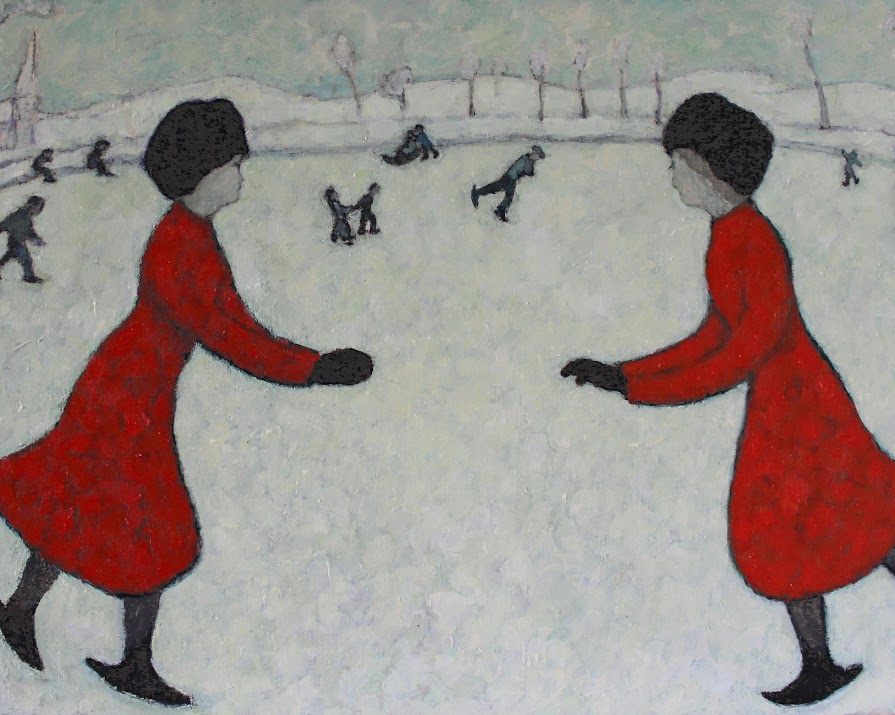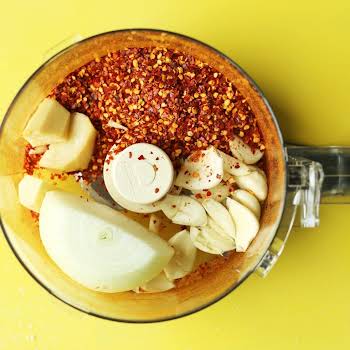By Rhona Mcauliffe
19th Dec 2018
19th Dec 2018
So often we surrender ourselves to the endless carnival that is Christmas, feeling like we’ve no other option. If you’re one of those people who dread the festive season and buckle under the weight of mandatory merriment, fear not – all you need is a plan, writes Rhona McAuliffe.
Among the twinkling lights and crackling fires, the bougie advent calendars and steady clatter of Christmas FM, it’s no secret that this time of year also represents a challenge for many of us. A simple call-out for Christmas-haters on my Instagram Stories drew a small but passionate crew. “I’ve made sure I’m out of the country for the past 19 Christmases,” wrote one very old friend of mine, nodding to her “toxic” family. “This year, we’re saying ‘no’ to a few family gatherings, which is huge for me,” wrote another. And from a new friend: “The older I get, the more I dislike it. I was very sick with cancer five years ago, and since then I’ve found Christmas particularly hard.”
No matter what our personal circumstances, Christmas can trigger painful memories and experiences. And when it feels like everyone around you has been sucked aboard the Yule Express, that pain is only heightened. When you know what’s coming, the only way to cope is to carefully map out your strategy. Here’s our non-exhaustive guide to navigating the season…
Try not to be a martyr
Your friends and family are far less intuitive than you think, unfortunately, so being frank and telling loved ones how difficult Christmas is for you is the best way to avoid feeling even more isolated. Your real allies will step up to the plate and support you.
Buck the system
Some of us are almost conditioned to prioritise everybody else but ourselves in the run-up to Christmas, careering from school concert to client lunch, to another late night in the office. “Try to remain committed to you,” says yoga teacher and wellness advocate Liz Costigan Fleury. “Keep going for your walks, meditating, running, going to the gym – whatever ‘your thing’ is, don’t stop. When the Christmas season comes around, we often give up on our self-care and leave the practices that have been positively great for us all year round by the wayside.” Consider politely declining invitations to gatherings or events where you are either not contractually obliged to attend or that you anticipate with a heavy sense of dread. In some cases, that may involve breaking with family tradition, where your absence should be pre-empted sensitively but firmly.
Ask for help
“First and foremost, please remember that you are never alone,” says Jennifer Griffin, general manager of online counselling and support group Turn2Me.org. “Our team of psychotherapists and counsellors are here online to support you throughout the Christmas period when you need it, con dentially and anonymously. And thanks to the support of the HSE and the National Office for Suicide Prevention, our service is also free.” Consider talking to your GP before Christmas about what support and local services may be available to you.
Give back
Research has found that helping others not only boosts your mood temporarily but also leads to long-lasting happiness, helping us to feel more optimistic and con dent about our ability to make a real difference. Unsurprisingly, Christmas is also a time when charities like Focus Ireland and the Simon Community are flooded with volunteers. Try signing up to volunteer.ie, or your preferred charitable organisation, offering your help now, in the run-up to Christmas, as well as beyond.
Go green
At last, the world is almost in agreement that we have reached “peak stuff”. As we slowly turn our backs on mindless consumerism in favour of sustainability, now is the time to legitimately reshape your festive spending. Consider more thoughtful, personal gifts, like a framed picture, a tree or potted plant, locally produced honey, etc. Set yourself an affordable budget and stick to it. Tip family off well in advance so you’re not turning up with a crate of jam on the day while they dole out Brown Thomas vouchers. Make a conscious effort to opt out of commercial expectations and ignore the “hippy” barbs. Own it.
Check yourself
With alcohol widely used as both a social lubricant and a way to numb the pain, it’s so easy to over-indulge at this time of year. Although “excess” is the commercial and social thrust of the season, alcohol is a depressant. It can cause anxiety, lead to negative thought cycles, and impact your sleep quality. Order a sparkling water as your first drink of the evening to quench your thirst, and be mindful of how over-drinking and eating make you feel. “Try to continue eating the foods you know nourish your body, mind and soul,” says Costigan Fleury. “Some over-indulgence can be enjoyable, but be alert to the effect on your mental and physical health. People will often say, ‘life is short, enjoy yourself’ and that’s key – life is too short to feel bad about yourself and for some, over-indulging creates pain. Listen to your body and do what’s right for you.”
Prioritise sleep
When late, boozy nights are the expectation, you know what to do – aim to be in bed by 10 pm! This won’t be possible every night, but being strict with yourself on your wind-down routine will transform your outlook. “Sleep is incredibly important for body, mind and spirit,” says Costigan Fleury. “Without sleep, we don’t eat balanced meals because our hunger and satiety hormones, leptin and ghrelin, are out of sync. Sleep helps with your energy levels physically and emotionally. When we don’t have enough sleep, it’s hard to tackle a stressful day.” Liz Costigan Fleury runs regular candlelit yoga and meditation retreats (lizcostigan eury.com).
Help is at hand
If you need more support, please reach out to the organisations that are there to listen and offer assistance…
Turn2Me.org offers online support groups, facilitated by mental health professionals, as well as online counselling, provided by psychologists. It provides a safe, confidential, interactive space for people to reach out for help. The site is also a great resource for current information on managing your mental health.
The Aware Support Line is a free service and is available to anyone over the age of 18 who is seeking support and information about issues relating to their own mood, or the mood of a friend or family member, or who experiences depression or bipolar disorder. Freephone 1800 80 48 48; lines are open Monday to Sunday 10 am to 10 pm.
Depaul offers support and shelter to those experiencing homelessness. They’re looking for volunteers to serve meals over the Christmas period, as well as barbers, hairdressers, beauty therapists and singers or musicians to lend their skills. Visit volunteer.ie for more information.
SpunOut.ie is Ireland’s youth information website created by young people, for young people, with a focus on physical and mental wellbeing. It’s a valuable resource for 16-to-25-year-olds, those most vulnerable to developing mental health difficulties.
Pieta House provides a free, therapeutic approach to people who are in suicidal distress and those who engage in self-harm. Freephone 1800 247 247; lines are open 24 hours per day.
This article was originally published in the December issue of IMAGE.
Picture: “Sisters on the Frozen Lake” by Anthony Murphy, oil on canvas, currently exhibiting as part of the Oriel Gallery’s The Christmas Box show, until December 22, www.theoriel.com






















